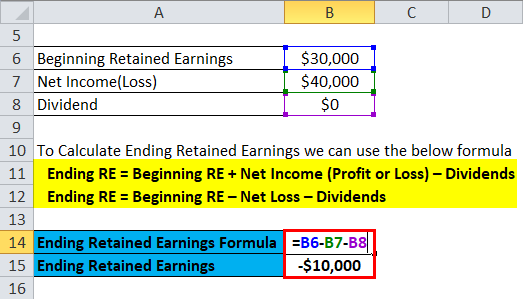DOT Record-Keeping Requirements for Trucking Companies: Tips for Staying Compliant

Driver Qualifications and Training to ensure drivers meet the necessary requirements and receive proper training.3. Hours of Service Regulations to track and monitor drivers’ working hours to prevent fatigue-related incidents.4. Vehicle Maintenance and Inspection to establish regular inspection schedules and standards for safe and well-maintained vehicles.5. Controlled Substances and Alcohol Testing to ensure a drug-free workplace and comply with Department fte or full-time equivalents of Transportation (DOT) regulations.6. Accident Reporting and Investigation to facilitate prompt reporting, analysis, and appropriate action in the event of accidents.7. Compliance with Load Securement Guidelines to ensure that cargo is properly secured during transportation to prevent accidents or damages.8.
Enhanced Efficiency and Productivity
The cash basis involves recognizing revenues when you receive payments and deducting expenses when you pay them. Because working in the trucking industry involves taking on significant risk, you’re often better off taking the time to form a limited liability company (LLC) or a corporation. As a result, you probably shouldn’t try to manage your trucking business’s accounting function without help. It may be worth handling some lower-level aspects, but you’re better off outsourcing cost center definition the more complex and time-consuming parts. While they’re theoretically distinct, the line between them is somewhat blurred. Here’s what you need to know about trucking accounting, including how to set up an effective system and some common mistakes to avoid.
Foley’s DOT recordkeeping experts are here to help you transfer your files to our platform and help ensure you’re audit-ready every day. Setting up (or switching) your DOT recordkeeping system in a secure, 100% online platform is the best way to ensure all your DOT files are organized and kept up to date according to FMCSA requirements. Having well organized files allow you to access the information that you need when you need it the most. It’s times like those when you’ll be very glad that you put the effort into record keeping, annoying as it might be. Common job related issues such as tax audits, incorrect pay statements, and warranty issues require written documentation in order to prove the rights and wrongs of the situation at hand.
- Rules and regulations are continually updated and revised making it imperative that fleet owners keep up with the changes to ensure compliance.
- If you link your trucking accounting software to your business bank account and credit card, it should track your every invoice and expense automatically.
- A positive reputation also contributes to business success by attracting new customers and retaining existing ones.
- Accounting is one of the least exciting aspects of small business ownership for many owner-operators.
- It is an essential component of comprehensive policies and procedures that promote safety and compliance in the industry.
About FMCSA
Post-trip inspection reports must be kept for at least three months from the report date. Periodic inspection reports (or a copy) must be retained for 14 months from the report date. Evidence of an inspector’s qualifications must be retained for one year after the inspector ceases to perform inspections for the carrier. The following is a quick review of record-retention requirements in a few key DOT compliance areas.

Fleet Manager
Both the Driver Qualification and Safety Performance History Files must be retained for as long as the safety-sensitive individual is employed by the company, and for three years thereafter. These binders will come in handy when it comes time to sell or trade in your truck. If you owed taxes in the previous year but not the current one, you must file Form 2290 to report the change and suspend your responsibilities.
Having this documentation on hand allows prospective buyers to see the vehicle in question’s history for themselves. Fuel cards can automatically track, organize, and display the information you need to fill out your IFTA expense reports. If you’re also using truck management software, you can usually link the two and automate your IFTA responsibilities completely.
The accrual basis of accounting requires that you recognize revenues when you earn them and expenses when you incur them, regardless of when funds enter or leave your accounts. Truckers must choose between the two fundamental methods of accounting, the cash and accrual bases. They impact your tax return significantly, so consider consulting an accountant before choosing one. Another decision every small business owner has to make is what type of legal entity they want to use. Sole proprietors are the default structure, so owner-operators who start doing business without filing any paperwork will fall into that category. Many business owners learn too late that mingling your personal and business funds makes it hard to identify which transactions belong in which category.
Because the rules make no exceptions for one-driver companies, we advise owner-operators to maintain their DAT files separately as well. conservatism business literacy institute financial intelligence Below, we cover some of the most important DOT record-keeping requirements to help companies organize and maintain their files regularly. Regular reviews and updates of policies are necessary in a trucking company due to technology advances and changing regulations. Recent rule changes, such as the electronic logging device (ELD) rule and the Drug & Alcohol Clearinghouse rule, require companies to stay informed and adapt their policies accordingly. That’s another reason paying for tax services is essential for the transportation business.
This manual acts as a guiding document that outlines the company’s expectations, standards, and protocols in various operational areas. A high-quality policies and procedures manual covers several key components necessary for compliance. An up-to-date policies and procedures manual is essential for managing operational risk in a trucking company. It sets expectations, keeps management accountable, ensures compliance with the law, defends against employee claims, and provides guidance for complaints or concerns.
